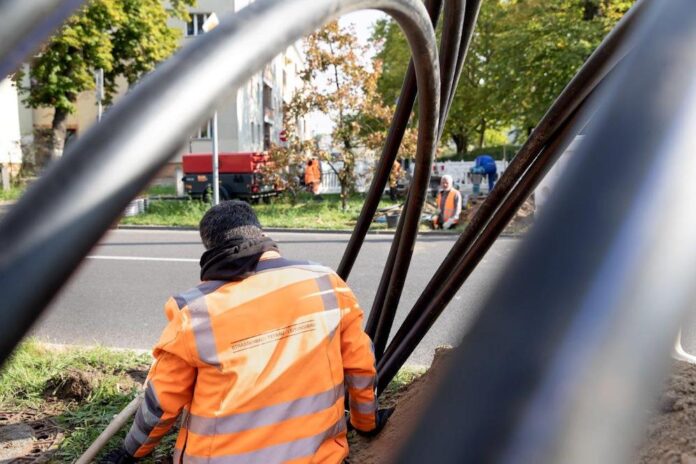ETNO, ecta, GSMA Europe and GigaEurope want swift passage for the legislation without it being distracted by additional proposals
Associations representing the European telecom industry has issued a joint statement calling on EU co-legislators to expedite the proposed Gigabit Infrastructure Act (GIA) and stop losing its intent by adding unrelated proposals like the elimination of all extra fees for intra-EU communication.
ETNO, ecta, GSMA Europe and GigaEurope have joined forces to lobby for changes to the rules they say are currently holding back the rollout of next-gen networks such as the rules for local network permits.
The GIA, which focuses strictly on deploying very high-capacity networks (VHCNs), will establish new rules for access to telecoms physical infrastructure, public assets and telecoms towers. It also addresses the digitisation of administrative procedures, as well as aiming to speed up the permitting process.
Ahead of the Telecommunication GIA Working Group discussion on scheduled for 29 September, the Associations urged lawmakers to focus on quickly passing the legislation to ensure that the EU meets its digital targets by 2030 – and to keep in mind the intended purpose of the whole legislative initiative in the first place.
While the European Commission has proposed that the GIA should be an EU regulation with direct application – not needing transposition by individual member states into national law – Parliament and the Council have instead proposed setting minimum GIA requirements that EU member states must follow, but allow for additional measures to reflect national circumstances, according to Cullen International.
The Associations back the EC proposal fearing the legislation will otherwise get bogged down. They want Member States to choose regulation rather than a directive saying it is: “the only legislative tool fully ensuring uniformity, limiting fragmentation across EU Member States and making sure that the GIA provisions will directly and rapidly contribute to the cost-efficient and timely deployment of VHCNs.”
Hands off our call rates
On 19 September, the Industry, Research and Energy Committee (ITRE) in the European Parliament adopted its position on the GIA but confirmed new regulations on international call rates in the EU – much to the angst of the Associations which argue the “unjustified” provisions are not in spirit of the Act and are a distraction.
“There is no evidence of any market failure in the provision of intra-EU calls and SMS justifying such an intrusive measure as a direct requirement to equalise prices with domestic calls and SMS, as the Parliament proposes,” the Associations state. “According to BEREC, the average price for mobile intra-EU calls is well below the safeguard caps of 0.19 EUR/minute and 0.06 EUR/SMS for intra-EU SMS messages and it continues to decline by approximately 12-15% per year. These developments confirm that competition is effective and this is further underlined by the availability of different call tariff options.”
The Associations argued that retail price regulation has no place in the Single Market. “Moreover, it runs counter to the objectives of this proposal to reduce the costs of the sector and to spur investment in VHCN roll-out. It is economically hurting those same players by unjustifiably curtailing their revenues and should therefore be rejected,” they stressed.
Time is of essence and 2030 is approaching
Although the Associations welcomed many of the changes to the Commission’s proposal suggested by the Rapporteur and the ITRE Committee concerning network builds, they are calling for “important modifications” to be made, at the risk of missing the 2030 targets if they aren’t.
On permit-granting procedures, the Associations agreed with Parliament’s aim for a two-month period, urging this stays in the final bill. On the other hand, they reject the proposal that every construction work requiring a permit shall be subject to a 3-month advance notification duty.
The Associations asked Member States to not water down several measures such as the tacit administrative approvals and exemptions for certain categories of network construction works from permit-granting when negotiating the details of national administrative processes.
Also, the proposal from the Commission to publish an implementing act defining a minimum list of works not subject to permit granting is essential and should be published on time for the implementation of the GIA, according to the Associations. “Based on practical examples from those Member States where permit-free works are already a reality, we can confidently say that such an act will considerably ease the deployment,” they state.
The Associations also called for the coordination of civil works to be extended to public sector bodies and for the harmonisation of permit-granting procedures at national level. “Current regional fragmentation in permitting processes and requirements is leading to a heavy administrative burden that is difficult to coordinate and unduly leads to delayed deployments,” they state.
The GIA should also spell out that building owners meet all reasonable requests by operators for access to in-building physical infrastructure and wiring under non-discriminatory terms and conditions and not subject to any fees or charges.
The telco bodies also called for the shortening of dispute resolution decisions to two months instead of four months, plus a safeguard for technology neutrality in network builds. “It is of utmost importance to keep the focus within the GIA on these necessary elements to facilitate network deployment,” they state.



